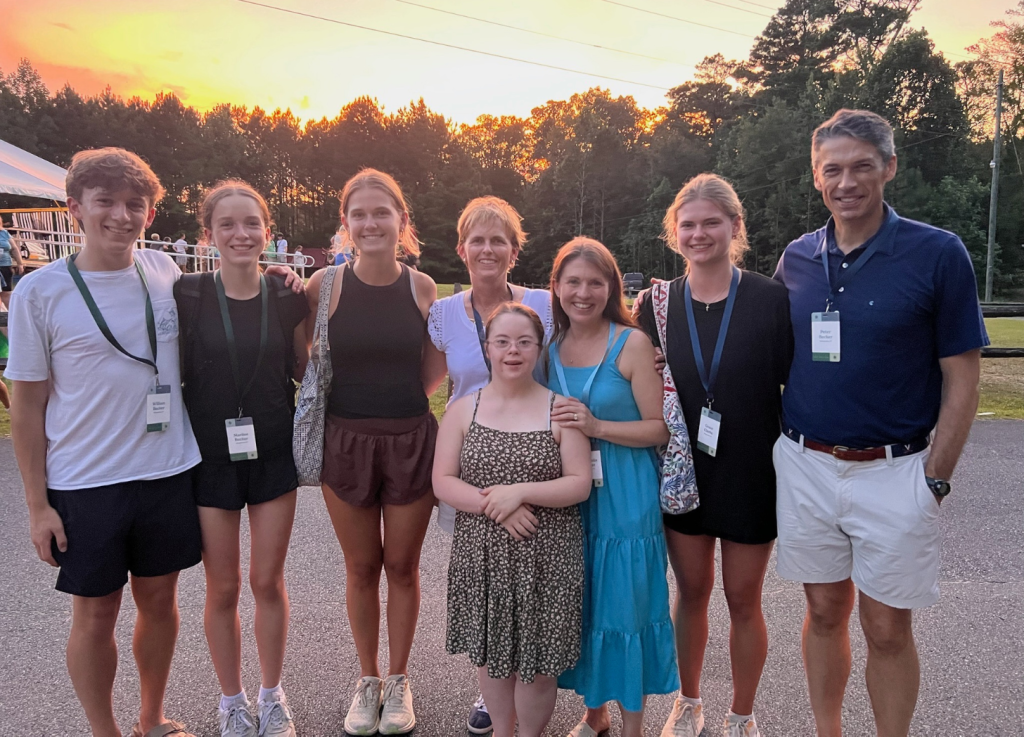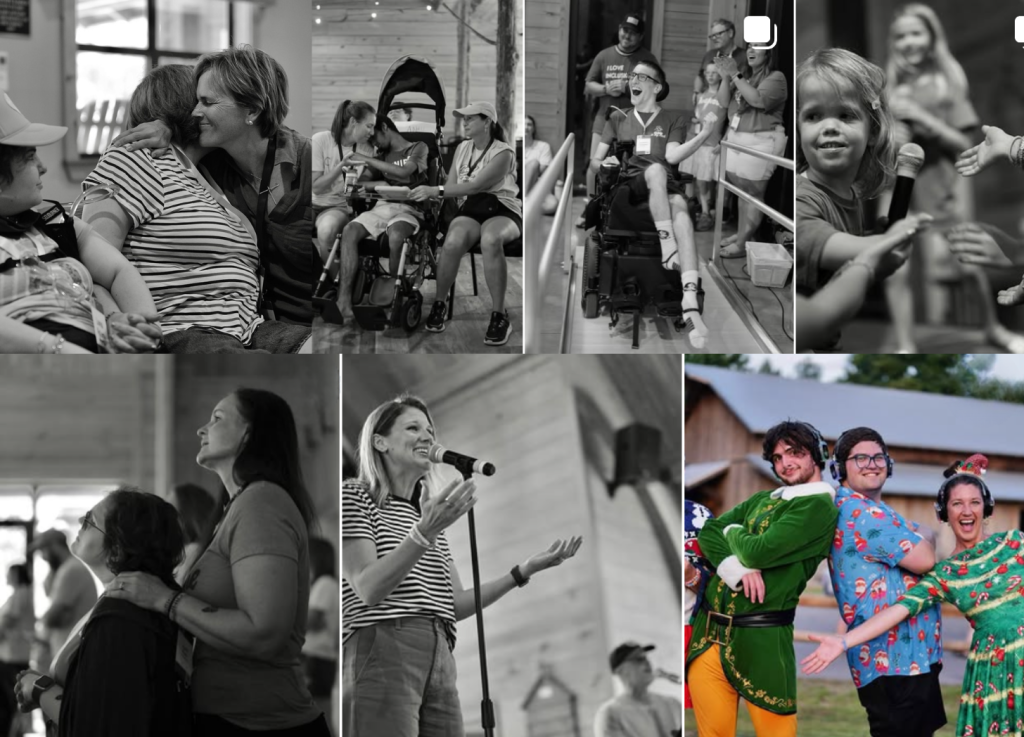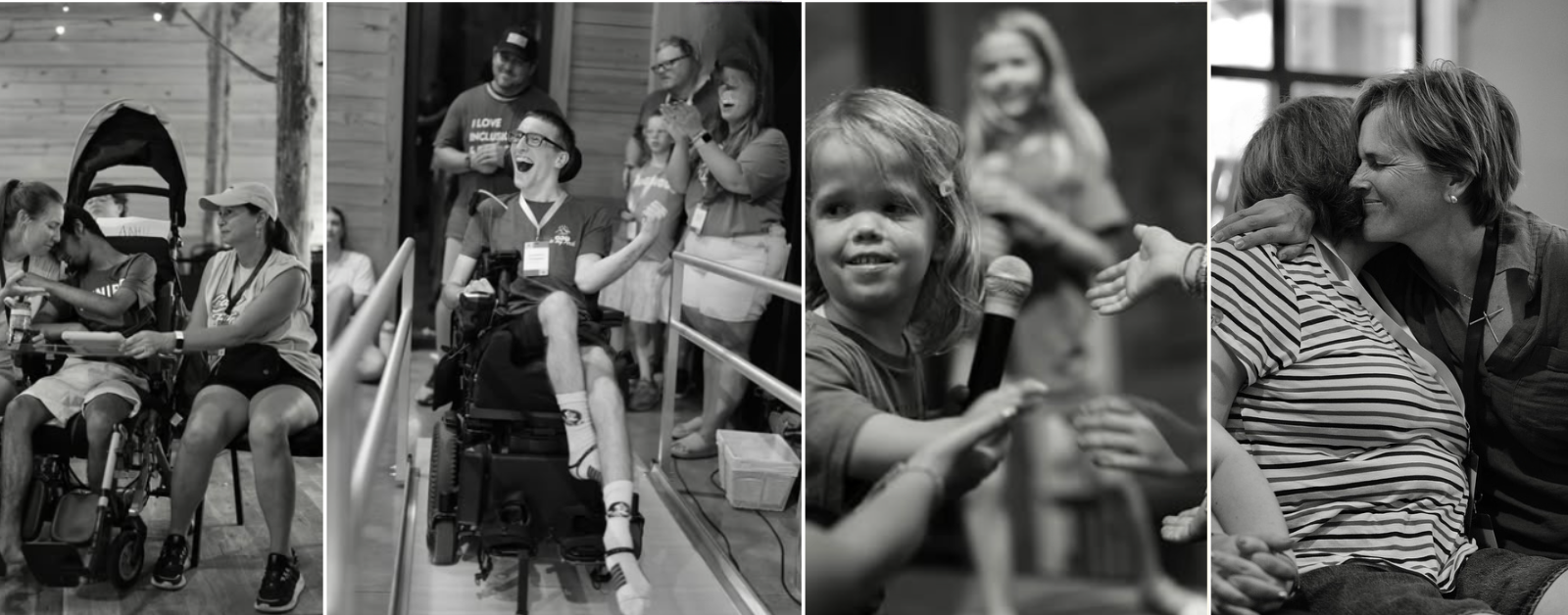You may have noticed that I didn’t write a Substack last week. I took the week off because I was at Hope Heals Camp in Nauvoo, Alabama, with our family. And now I have too many thoughts to share with you, so you may be reading about camp for weeks to come!

For those of you who aren’t already familiar with it, Hope Heals Camp happens every summer at Camp McDowell in northern Alabama. Families affected by disability gather—for free—for a week of exceptionally gracious welcomes, fun programming, and beautiful connection. Each week hosts about 300 campers alongside 250 staff and volunteers (who pay tuition to attend in this very upside-down way). Together, it becomes a glimpse of what the world could be if we believed our belovedness, received that belovedness from the source of all love, and lived into that love with one another. (If you’re wondering if this camp might be for you, here’s what Penny wrote last year about why you should go!)
One of my roles this past week was called “Disability Educator.” Penny and I shared this responsibility, which was a joy in and of itself as we got to tell the camp our story of disability together and she helped me lead a retreat on Reimagining Family Life with Disability, as well as a workshop on Taking the Next Step toward a Good Future.

I also had a chance to meet one-on-one with various parents who wanted to talk through those next steps. One of those parents reflected on the attitude her typically-developing daughter has towards her disabled sister. “She (the typical daughter) wants to help her (the daughter with a disability), but I’m not sure she wants to love her.”
The Distinction Between Help and Love
That sentence summarized so much of what I experienced at camp last week—that distinction between help and love. Help is not bad, and we all need help at many points along the way. But if I understand myself as a helper—if my identity gets wrapped up in helping, and if all I know to do is help without admitting my own neediness—well, then I set up a social hierarchy where I’m on top. I distance myself from those in need. But if I enter into a relationship of love with someone, then I’m breaking down a social hierarchy. I’m helping when they need help. I’m also allowing my own neediness to become evident. Mutual giving and receiving ensues.
At camp last week, we didn’t hear an explanation of this kind of love. We experienced it.

I saw campers with intellectual disabilities bless and befriend their compassionate companions. I heard parents talk about how they haven’t seen their disabled children so at peace, so confident, so comfortable, ever before. I received my own deepened understanding of belovedness. I wasn’t teaching at camp this year, and I wondered whether I wasn’t using my gifts. I had a sense that instead of maximizing my potential, God was interested in patiently helping me understand that I am loved for who I am and not what I produce.
The Only Answer We Have
One afternoon, Marilee and I were walking together. Earlier that day, we had both learned a hard story about a camper who had been abused. She said, “You know, Mom, that’s the kind of thing that makes me wonder whether God is real and whether God is loving.”
I said, “That’s exactly the question we should be asking when we know that a totally innocent and vulnerable child has suffered trauma for absolutely no reason. I could give you the technical theological answer to the question, but that answer isn’t satisfying at all.”
The only answer we had at camp was love. Suffering cannot be explained, but it can be alleviated when we enter into it together. Pain cannot be erased, but it can begin to heal when we hold our stories alongside one another.
Hope Heals does not deny the reality of suffering, sorrow, or fear. But it wraps those realities in love. In much of our world, the opposite is true. We wrap our love with fear and sorrow. We constrain our love—make sure it doesn’t get too big and overwhelming and out-of-control. And then the fear and sadness grows, and the love struggles to remain.
But love is big enough to contain hardship, make space for lament, and grieve the loss of lives gone far too soon. And when love wraps around our pain, the love can grow. The pain can heal.
I can’t fully express how grateful I am that our family gets to experience a place of love, hope, and joy like this every summer.
-Amy Julia
Let’s stay in touch. Subscribe to my newsletter to receive weekly reflections that challenge assumptions about the good life, proclaim the inherent belovedness of every human being, and envision a world of belonging where everyone matters. Follow me on Facebook, Instagram, and YouTube and subscribe to my Reimagining the Good Life podcast for conversations with guests centered around disability, faith, and culture.



